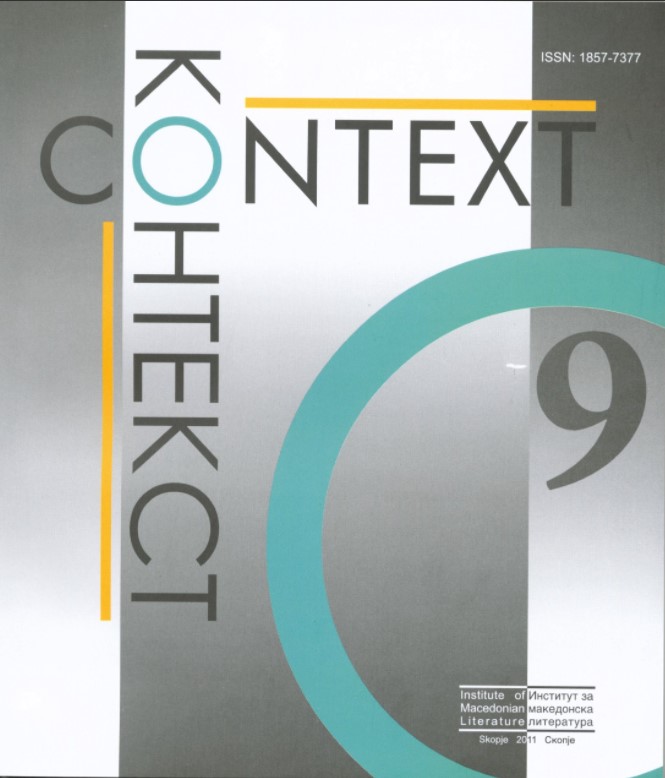ПРЕД ДОЖДОТ И ПРАШИНА НА МИЛЧО МАНЧЕВСКИ ИЛИ КОГА ОБЈЕКТОТ СТАНУВА СУБЈЕКТ
Before the Rain and Dust by Milco Manchevski or When the Object Becomes Subject
Author(s): Loreta Georgievska-JakovlevaSubject(s): Political economy, Politics and society, Film / Cinema / Cinematography
Published by: Институт за македонска литература
Keywords: identity; Europe; the Balkans; an externalization of violence; subject; objesct; Milcho Manchevski
Summary/Abstract: By juxtaposing the idea of a common (shared) European identity, otherwise promoted through the various EU Accords and Acts, this paper aims at questioning the matrixes which are to govern this very same idea. The practical implementation of all which could be encompassed by the slogan “Europe without Borders” runs into at obstacles: one of them is connected to the tendency of externalizing the violence without the EU borders, towards the Balkans, as Europe’s ‘Other’. A direct consequence of one such condition is the feeling of non-belonging, of marginalization and segregation of a part of Europe. This paper is an attempt at answering the question of the kind of implications the aforementioned sentiment of inferiority holds when creating cultural products in Macedonia, and of the kind of knowledge being produced from these analyses. Thus, the object of this paper is the film opus of Milcho Manchevski (Before the Rain and Dust). The phenommenon of externalizing the violence is seen in the films by Manchevski through the relationship subject-object. That which Dust brings forth as a realization delves deeply into the relation East-West, and thus articulates the impossibility of having “objectivity”, “truthfulness”, so that the West is revealed as the East’s equivalent, both today and in the past. The negative projection of Europe’s Other through the standpoint of this film loses its legitimacy. The once Wild West remains equally wild as today’s Wild East, thus disrupting the rules governing power and imagination, stipulated and controlled as such by the West. Through the example of Manchevski’s film, the Balkans are no longer the object of someone’s study; rather, they become a subject with their own deconstruction strategies of the ways in which the West gets to rule. The outcome of this struggle for becoming a subject de-legitimizes the Western narrative about a common (shared) European identity as peaceful and lawful, thus, in turn, the invalidity of this narrative, under said conditions, denies the existence of a common (shared) European identity.
Journal: Context/Контекст
- Issue Year: 2011
- Issue No: 9
- Page Range: 165-174
- Page Count: 10
- Language: Macedonian

